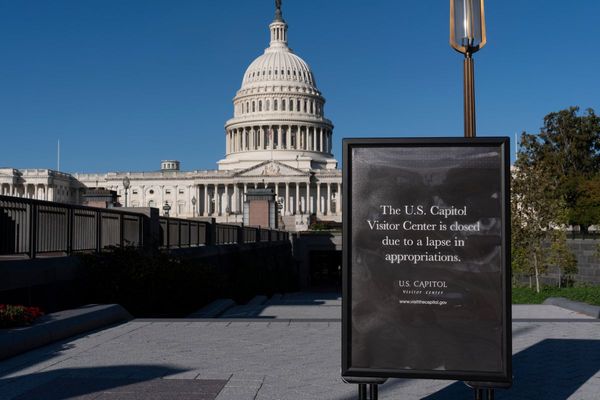The chairmen of Britain’s biggest banks began their defense of London as the world’s trading hub after the Brexit vote wiped $45 billion from the value of their companies and raised the chances that financial jobs will move to other cities.
“The capital markets of Europe are not in Paris or Frankfurt -- they are here,” Barclays Plc Chairman John McFarlane said at TheCityUK’s conference in London on Thursday, the first public event hosted by the financial-services lobby group since the June 23 referendum. Trading “should be done where it’s the most efficient and cost-effective. To replicate that quickly is going to be very, very difficult,” he said.
One week after the U.K. voted to leave the European Union, the world’s biggest financial center is scrambling to grasp the consequences and beginning to develop a coordinated response. Amid a political vacuum after Prime Minister David Cameron said he would step down, little clarity is on offer for global banks with London operations.
Banks and insurance executives discussed their response to Brexit at a meeting led by Deutsche Bank AG Chairman Paul Achleitner on Wednesday, convened by the European Financial Services Round Table, whose members include leaders of companies including Barclays, Allianz SE and Credit Suisse Group AG, according to a person with knowledge of the matter.
Keep Passporting
The executives, whose companies jointly employ more than 100,000 in London, expressed concern and uncertainty about the situation, said the person, who asked not to be identified because the matter is private. Participants asked how they were supposed to draft contingency plans when Britain’s political climate was so unstable, the person said.
The banks “have had lots of discussions between us, and it’s clear what we would like to see, which is as much of the passporting preserved as possible,” Royal Bank of Scotland Group Plc Chairman Howard Davies said in an interview with Tom Keene and Francine Lacqua on Bloomberg TV on Thursday, referring to the system that enables lenders to do business across the EU from the U.K. “The question is, can we get that fed into the British negotiating brief, and is it negotiable?”
Davies said the New York and Asian financial centers would likely benefit, rather than European hubs like Frankfurt, if the City of London financial district lost its passporting rights. He also said retaining passporting could depend on the U.K. allowing freedom of movement across the region, which may not fly with some of the Conservatives seeking the prime minister’s job.
Market Access
“The most critical thing to preserve is access to the market,” HSBC Holdings Plc Chairman Douglas Flint said at the conference. “We can look forward with some confidence to the opportunities, if we can get the priorities of market access and making sure we can get the talent into London.”
The lender would only relocate about 1,000 employees from the U.K. if banks lost their passporting rights, Flint said. Chief Executive Officer Stuart Gulliver said in February that such a move may be needed to comply with MiFID II, the EU rules covering everything from derivatives trading to bond pricing.
‘Hypothetical Circumstances’
“No decision in that regard has been taken yet because nothing has changed, and it would be premature to even speculate,” Flint said in an interview Thursday on the sidelines of the conference. “It was a hypothetical set of circumstances, which I don’t think anyone believes will happen -- maybe bits and pieces. But the wholesale withdrawal of passporting rights would be damaging to both sides.”
Banks in London wouldn’t make “knee-jerk” staff relocations due to the expenses involved, such as canceling property leases, Barclays’s McFarlane said. Decisions won’t be taken “until there is clarity” on the U.K.’s access to EU markets, and that could take as long as two years, he said.
“If we were required to move operations or people because we couldn’t conduct business from London, we’d move it to somewhere where we already have a passport,” such as Dublin, McFarlane said at the conference. “We’d rather we don’t have to.”
Political Vacuum
Bank chiefs also bemoaned the political environment. Cameron has resigned, most lawmakers in the opposition Labour party demanded their own leader quit, and the most prominent figure in the “Leave” campaign, former London Mayor Boris Johnson, pulled out of the race to be the next British prime minister. The ruling Conservative party won’t appoint a new leader until September.
“What we actually do need is stability and direction and that requires leadership,” McFarlane said. “It’s not particularly helpful when you’ve got disarray in both the opposition and the government.”
His counterpart at RBS, a former chairman of Britain’s financial regulator, concurred.
“Political stability? Let’s not talk about that at the moment,” Davies said. “There’s a sense that the U.K. has become a somewhat riskier place to invest. We used to pride ourselves on financial and political stability.”
(Adds comments from British bank chairmen throughout.)
To contact the reporters on this story: Stephen Morris in London at smorris39@bloomberg.net, Richard Partington in London at rpartington@bloomberg.net. To contact the editors responsible for this story: Michael J. Moore at mmoore55@bloomberg.net, Keith Campbell, Jon Menon
©2016 Bloomberg L.P.







